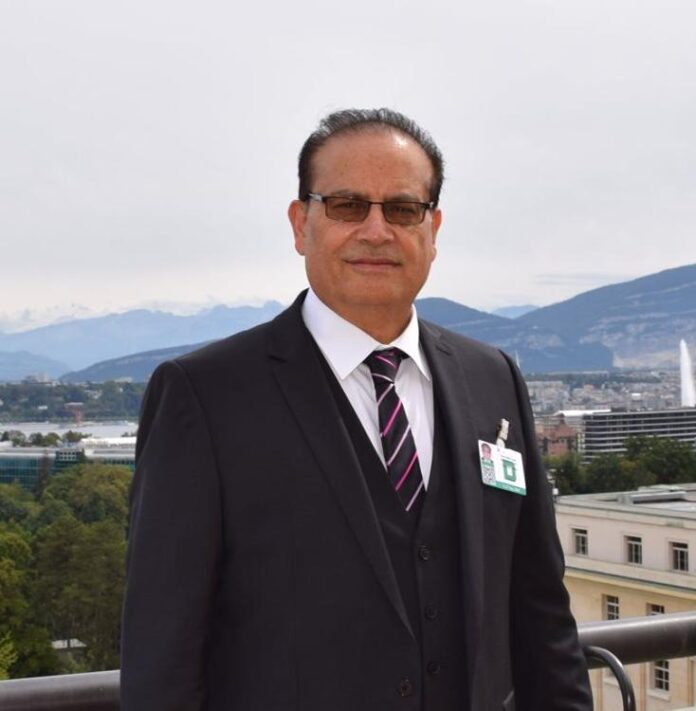In the immediate aftermath of the tragic terrorist attack in Pahalgam—a heavily militarized yet scenic area of Indian-administered Kashmir—India’s response was marked by outrage rather than introspection. Yet, ten days later, no retaliatory action has occurred. Domestically, Prime Minister Narendra Modi finds himself increasingly isolated, while internationally, India stands diplomatically cornered for attempting to implicate Pakistan without credible evidence. Despite fiery rhetoric, India’s inaction reflects a sobering realization: any military confrontation with Pakistan would be regionally destabilizing, globally condemned, and potentially catastrophic.
India’s restraint from launching punitive strikes against Pakistan can be attributed to four compelling reasons. First, Prime Minister Modi’s narrative failed to gain traction among critical segments of Indian society—including Indian Muslims, ordinary citizens, and even Kashmiris and victims of the attack—many of whom demanded evidence before blaming Pakistan.
Second, Pakistan’s swift and robust military readiness served as a strong deterrent, making any offensive operation risky.
Third, the global community, including major powers like the United States, Russia, China, the European Union, the United Kingdom, and the United Nations, collectively cautioned India against taking aggressive action without concrete proof.
Lastly, the absence of international support left India diplomatically isolated, forcing it to reconsider any rash military options.
Not a single opposition party supported the call for action against Pakistan. Civil society, religious minorities—including a vocal segment of the Sikh community—and even victims’ families publicly questioned the government’s rush to assign blame without evidence. Interviews conducted with Kashmiri civilians in Pahalgam revealed a powerful counter-narrative: while many condemned the attack, they rejected the notion of Pakistani involvement in the absence of concrete proof. More compellingly, survivors recounted how local Kashmiris risked their own lives to shelter and assist fleeing tourists—an act of humanity that contradicted the vilifying rhetoric being propagated by New Delhi.
The attack was universally condemned—including by Pakistan. Yet, instead of rallying global support, India’s accusations failed to gain traction among international powers or even within its domestic political spectrum. Major global stakeholders—ranging from the United States, China, Russia, Saudi Arabia, and the European Union—issued strong condemnations of the terrorist act but stopped short of echoing India’s allegations.
Pakistan, for its part, responded with urgency and maturity. Its air force, army, and navy were placed on high alert to defend against any incursion, and preparations for a measured counterstrike were reportedly in place. Yet, Islamabad’s official posture remained one of composure and diplomacy. Pakistan reiterated its commitment to peace and offered to form a joint investigation commission—national or international in nature—to identify and prosecute the perpetrators. It was a move that showcased both moral clarity and strategic sophistication.
International reactions reflected this cautious approach. U.S. Vice President JD Vance emphasized the importance of restraint, stating, “Our hope here is that India responds to this terrorist attack in a way that doesn’t lead to a broader regional conflict,” and urged Pakistan to cooperate in addressing terrorism emanating from its territory. President Donald Trump condemned the attack as “deeply disturbing” and reaffirmed support for India, expressing solidarity with Prime Minister Modi and the Indian populace. U.S. Secretary of State Marco Rubio engaged in diplomatic outreach, speaking with Indian Foreign Minister Subrahmanyam Jaishankar and Pakistani Prime Minister Shehbaz Sharif, advocating for de-escalation and cooperation in investigating the attack.
The United Nations and European Union similarly declined to attribute blame without an investigation. The EU’s foreign affairs spokesperson stressed the importance of “thorough, impartial inquiry” before making any judgments. Even traditionally close allies of India, such as France and the UK, withheld any statements implicating Pakistan, instead emphasizing regional peace and counterterrorism cooperation. In short, Modi’s call to arms found no international takers.
This global restraint had a profound effect domestically in both countries. In Pakistan, a prevailing sentiment of vindication emerged. Citizens across ethnic, political, and religious lines rallied in unity—not in fear of war, but in confidence that the truth would prevail.
In India, Modi’s credibility began to erode under scrutiny. The Sikh diaspora, particularly vocal in the UK and Canada, denounced the government’s failure to produce evidence and accused it of communal scapegoating for political gain. They highlighted that diverting water from Pakistan, as threatened by Modi, was both technologically unfeasible and diplomatically provocative.
The credibility gap widened further when local Kashmiri interviews aired on Indian media and social platforms showed ordinary citizens, tourists, and survivors questioning how such a brazen act could occur in a zone saturated with military surveillance. Pahalgam, located hundreds of miles from the Line of Control (LoC), is among the most tightly guarded areas in South Asia. Many questioned how attackers could infiltrate such a zone without insider facilitation or gross security lapses—raising uncomfortable questions for Indian authorities.
Public opinion, even among those not deeply involved in politics, leaned strongly toward peace. A telling anecdote from a Pakistani household illustrates this mood. The author’s wife, observing the situation carefully, made a light-hearted bet with her brother—an American citizen—over whether India would retaliate. She confidently said India would not attack Pakistan, while her brother disagreed. The wager? One hundred U.S. dollars. As days passed and no military action occurred, her foresight proved correct. This simple household bet reflected a broader public sentiment: that common sense and mature diplomacy would prevail over hollow threats and rash decisions.
What this incident exposed, beyond geopolitical calculations, was a significant shift in global norms regarding conflict and accountability. No longer can states hurl accusations and expect blind support. The world demands evidence, proportionality, and legal procedure. Pakistan’s transformation from a nation once blamed for regional instability to one actively advocating transparency and collaboration is a diplomatic victory. India’s inability to present proof or secure diplomatic endorsement is a cautionary tale in the perils of reactionary politics.
The road ahead remains fraught. Terrorism is a mutual enemy, and both nations must prioritize internal reforms, intelligence sharing, and regional cooperation. For India, this begins with introspection: evaluating its own intelligence failures, resisting the temptation to exploit tragedy for political mileage, and honoring its democratic commitments to truth and justice. For Pakistan, it means continuing to dismantle residual extremist networks and demonstrating—consistently—its resolve to combat terrorism in all its forms.
In the final analysis, the Pahalgam attack was not just a test of national security—it was a test of national character. Pakistan passed with dignity and poise. India, blinded by political posturing, faltered in the court of global opinion. It is now for the international community to hold all actors accountable—not just with rhetoric but through principled engagement that promotes peace, justice, and mutual respect. In a region brimming with nuclear weapons and historic mistrust, silence, patience, and truth—not sabre-rattling—are the most powerful weapons of all.
Qamar Bashir
Press Secretary to the President (Rtd)
Former Press Minister at Embassy of Pakistan to France
Former MD, SRBC
Macomb, Detroit, Michigan

















